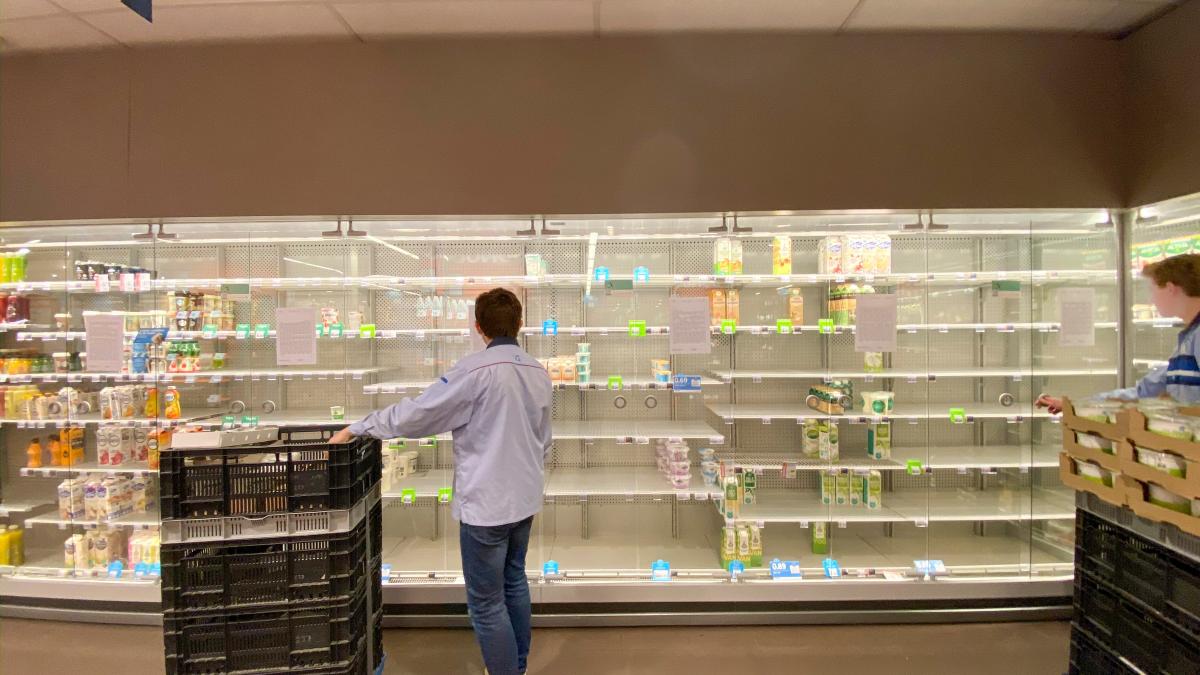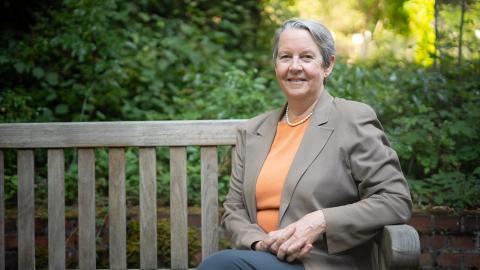.jpg)
As the COVID-19 pandemic unfolds, new research shows nearly 1 in 5 young children in the United States are not getting enough to eat. What are the impacts to our food supply and food security in Washington state?
A team of University of Washington researchers will examine how the pandemic has affected food security and access with help from a new rapid response grant awarded by the UW Population Health Initiative and the Department of Epidemiology to respond to COVID-19.
Researchers from the UW Department of Environmental & Occupational Health Sciences (DEOHS), the Nutrition Sciences Program and the Center for Public Health Nutrition will investigate household impacts in the five most affected counties: King, Snohomish, Pierce, Yakima and Spokane.
Combining expertise in food sustainability, health disparities
Leading the study are Jennifer Otten, associate professor in the UW Department of Environmental & Occupational Health Sciences, and Professor Adam Drewnowski, director of the Nutritional Sciences Program in the UW School of Public Health. Otten and Drewnowski are also researchers with the Center for Public Health Nutrition.
Otten is a co-investigator on the Seattle Minimum Wage Study and current member of a National Academies committee conducting a systematic review of consumer food waste. Otten is also leading UW efforts in expanding the curriculum in food systems to address the complex issues we face with the sustainability of the food supply.
Drewnowski’s work deals with disparities in diet quality and health by geographic location. His current study with Kaiser Permanente of Washington examines health outcomes in Seattle neighborhoods.
Food instability during the pandemic
In recent days, national news coverage has highlighted complexities and vulnerabilities in food systems related to the COVID-19 pandemic, from speculation about potential meat shortages to rising demand at food banks.
Food production, processing and delivery systems are experiencing instability.
For lower-income Washington residents, Otten said, food access and food insecurity was already a critical concern, even before COVID-19 came along.
“Washington state government emergency planning documents detail current food shortages and forecast more for food banks and other emergency food assistance programs even as there are a growing number of unemployed and more people in need than ever,” said Otten.
“We hope to help state agencies learn more about how households are being affected so that they can invest their limited resources in the best possible ways.”
Findings expected in August
There is an unprecedented need for unemployment benefits, public assistance programs and food from local food banks.
Moreover, local, state, and federal measures to mitigate the dietary and health consequences of COVID-19 lack specific data to aid in decision-making.
“Natural disasters have the most impact among the most vulnerable groups. Fast recovery depends on the ability of communities to address and handle issues of food access and food security,” Drewnowski said. “We want to equip Washington state and local health departments with data to help them navigate aid for faster recovery.”
The project began on May 1, with findings expected in August.
Other researchers working on the project include:
- Sarah Collier, DEOHS assistant professor in the Nutritional Sciences Program.
- Laura Lewis, associate professor in Community and Economic Development at Washington State University.
- James Buszkiewicz, a doctoral candidate in the Department of Epidemiology and Center for Public Health Nutrition.
- Chelsea Rose, research coordinator in the Department of Epidemiology and Center for Public Health Nutrition.
- Alan Ismach, a research coordinator in the Department of Health Services and Center for Public Health Nutrition.




